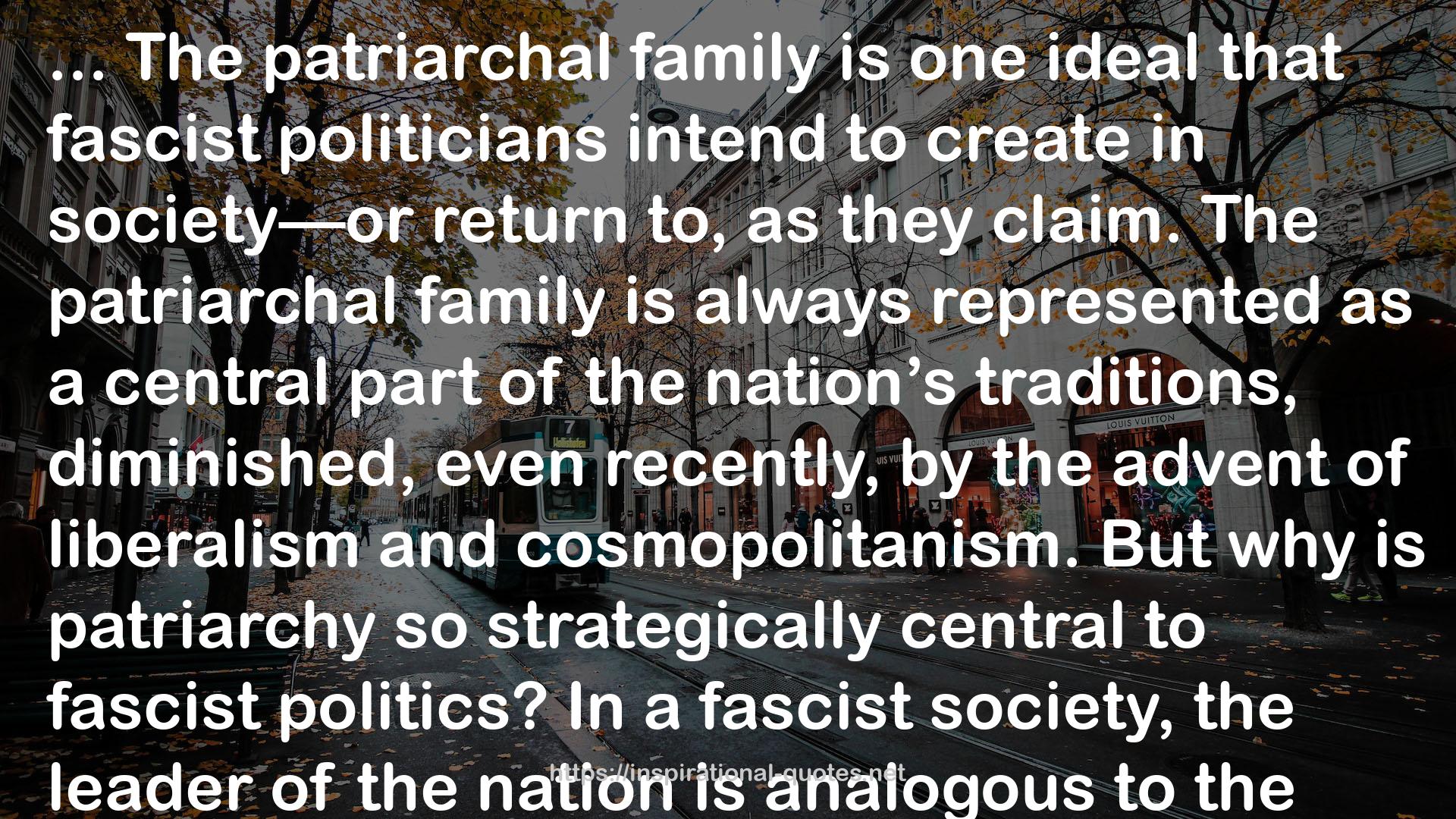" ... The patriarchal family is one ideal that fascist politicians intend to create in society—or return to, as they claim. The patriarchal family is always represented as a central part of the nation’s traditions, diminished, even recently, by the advent of liberalism and cosmopolitanism. But why is patriarchy so strategically central to fascist politics? In a fascist society, the leader of the nation is analogous to the father in the traditional patriarchal family. The leader is the father of his nation, and his strength and power are the source of his legal authority, just as the strength and power of the father of the family in patriarchy are supposed to be the source of his ultimate moral authority over his children and wife. The leader provides for his nation, just as in the traditional family the father is the provider. The patriarchal father’s authority derives from his strength, and strength is the chief authoritarian value. By representing the nation’s past as one with a patriarchal family structure, fascist politics connects nostalgia to a central organizing hierarchal authoritarian structure, one that finds its purest representation in these norms. "
― Jason F. Stanley , How Fascism Works: The Politics of Us and Them
